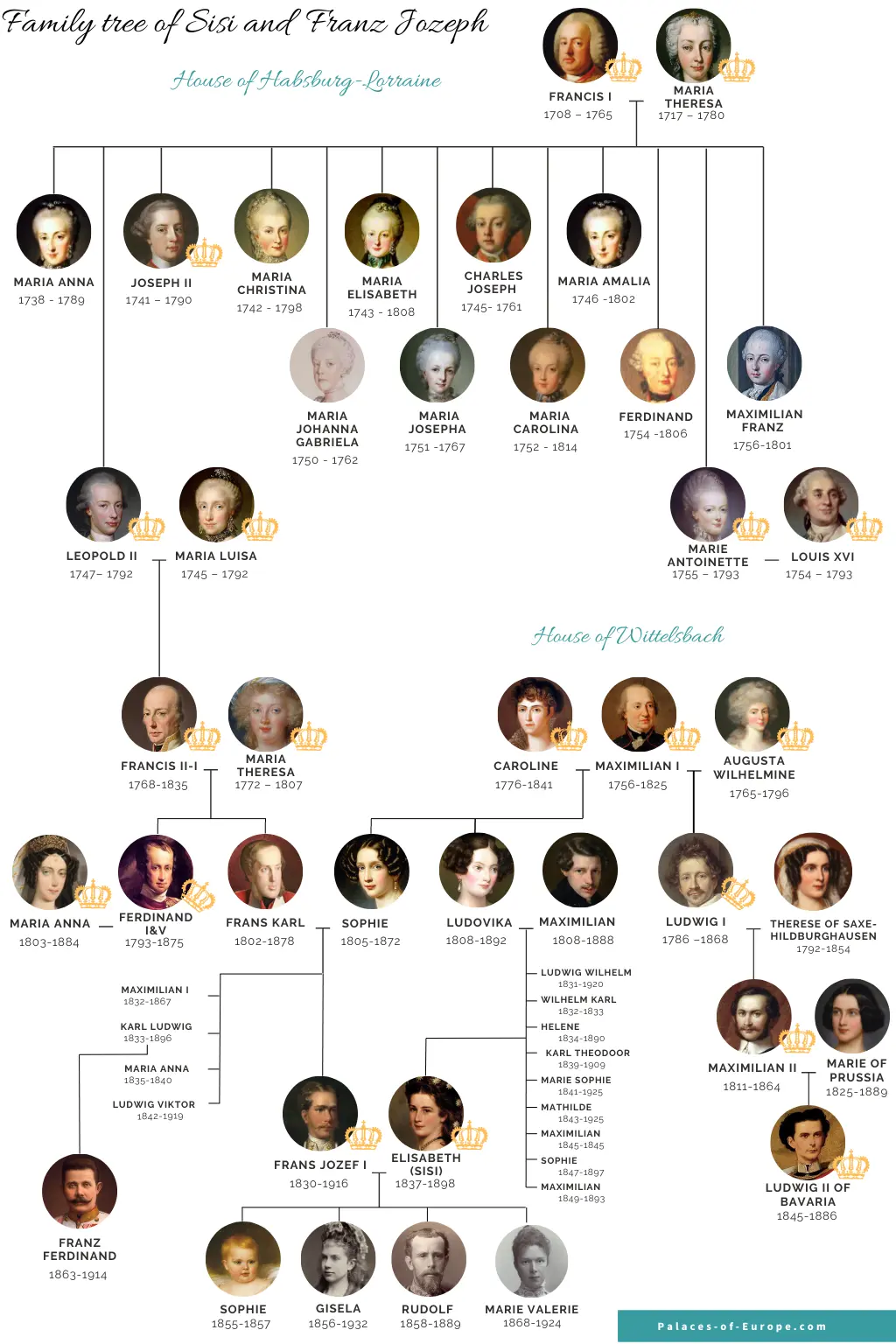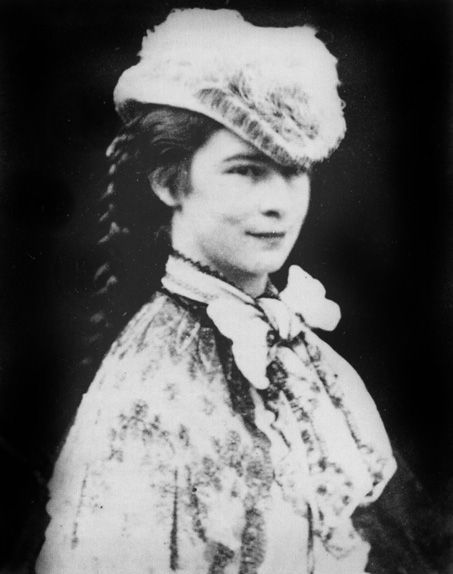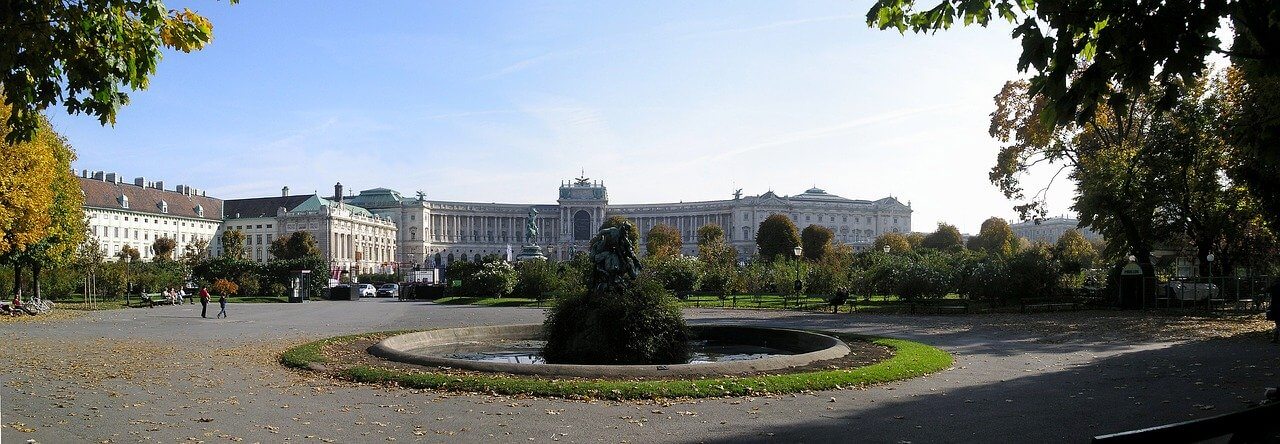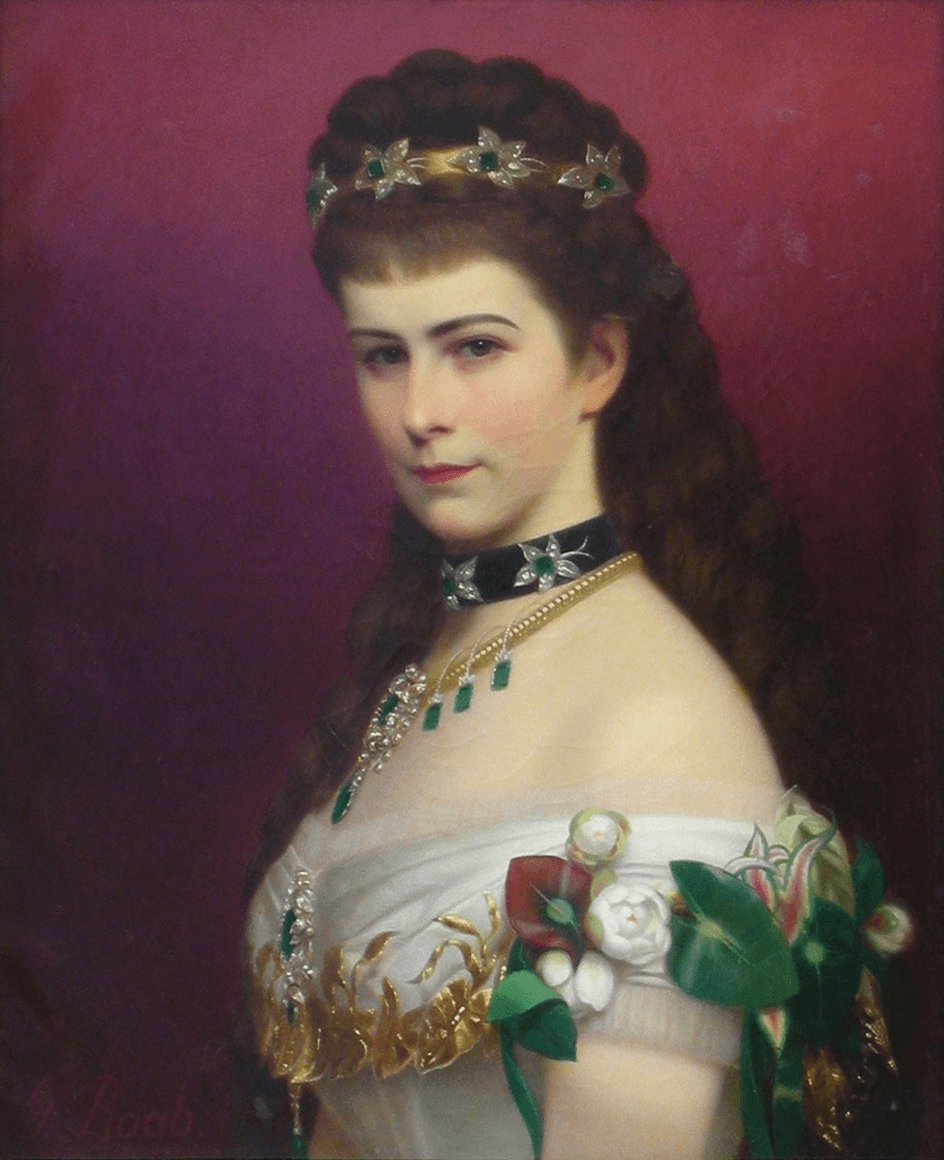A Deep Dive into the Franz Joseph and Sisi family tree
The Habsburg dynasty, a titan of European history for centuries, is infamous for its complex family tree. Untangling the lineage of Emperor Franz Joseph I of Austria and his wife, Empress Elisabeth (Sisi), can feel like navigating a labyrinth. This article will shed light on the fascinating familial connections and answer some of the most common questions surrounding the Franz Joseph and Sisi family tree.
DISCLOSURE: I get commissions for purchases made through some of the links in this article.
Were Sisi and Franz Joseph of Austria related?
Franz Joseph and Sisi were cousins through their mothers. Both Franz's mother Sophie and Sisi's mother Ludovika were princesses from the House of Wittelsbach. Both are daughters of King Maximilian I of Bavaria and his first wife Caroline.
Are Sisi and Marie Antoinette related?
And what is the link between Franz Joseph I of Austria and Marie Antoinette?
It becomes clear that there is a connection; all three of these people appear in this family tree.
What immediately becomes clear is that they never met each other. Marie Antoinette had already been dead for almost 50 years when Sisi and Franz were born.
Marie Antoinette is indeed related to Franz Joseph. Her parents, the famous Austrian Empress Maria Theresa, and her husband Francis I, are the great-great-grandparents of Franz Joseph.
Sisi has no direct blood ties to Marie Antoinette. Their connection is solely through marriage
What was the relationship between Sisi and King Ludwig II of Bavaria?
Ludwig II and Sisi were first cousins once removed. This means that Ludwig's father, Maximilian II, was Sisi's cousin. Ludwig's grandparents were Sisi's uncle and aunt.
Sisi and King Ludwig II of Bavaria had a special bond. Ludwig was 8 years older than Sisi. They shared a strong connection based on their shared love of nature, poetry, and a desire for solitude.
How many siblings did Franz Joseph and Sisi each have?
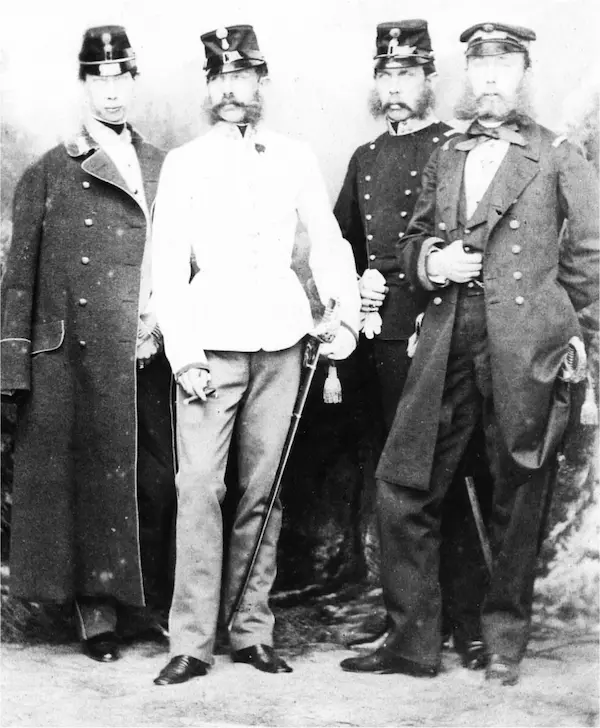 Francis Joseph with his brothers in 1859
Francis Joseph with his brothers in 1859Franz Joseph had 3 brothers and a sister who died very young. Of his brothers, Maximilian is the best known, due to his adventures as Emperor of Mexico. I will write another article about him, as it is a fascinating story.
Sisi had 9 brothers and sisters. The most famous of them, her sister Helene, was 3 years older and was originally intended to marry Franz Joseph. You can read her story here.
Going back in time, how many children did Francis I and Maria Theresa have?
Francis I and Maria Theresa had an astonishing 16 children together. Where she could find the time to rule an empire? It's a mystery to me.
Not all of them are included in this family tree, as the young ones who died are not shown due to lack of space.
Several of these 16 children held important positions in Europe. It was a very influential family, and their descendants can still be found in various European royal houses.
The family tree of Sisi and Franz-Joseph also raises further questions.
Why did Franz Joseph become Emperor of Austria at the age of 18? His father was still alive, wasn't he?
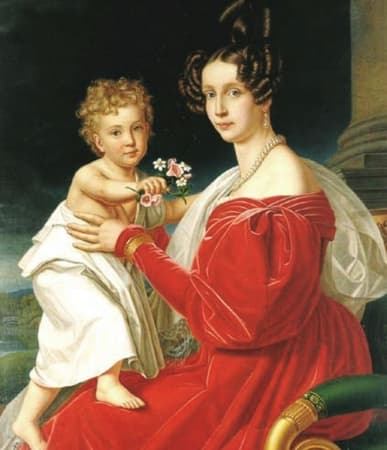 Archduchess Sophie with a little Franz Joseph
Archduchess Sophie with a little Franz JosephFranz Joseph became Emperor of Austria as a result of a combination of factors:
In 1848, the year Franz Joseph became Emperor, there were uprisings and revolutions in many parts of Europe. Royal houses were falling everywhere. The reigning Emperor Ferdinand I, Franz Joseph's uncle, proved unable to control the situation and was forced to abdicate.
Franz Joseph's father, Archduke Franz Karl, was the logical successor. However, under heavy pressure from his wife, Archduchess Sophie, he decided to forgo the throne.
Sophie saw in her young son Franz Joseph the better candidate to save the monarchy. His young age and lack of experience made him an easy pawn in the hands of those who wanted to maintain power (his mother in particular).
Who was Franz Ferdinand?
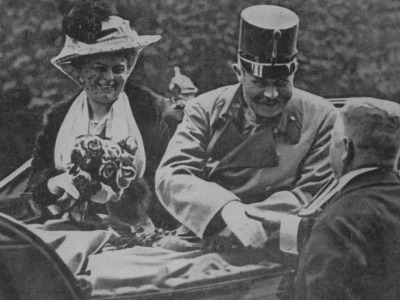 Frans Ferdinand and Sophie in Sarajevo
Frans Ferdinand and Sophie in SarajevoThe name Franz Ferdinand rings a bell for most people because of his connection to World War I. In Franz Joseph's family tree, you can see what his relationship is to Sisi and Franz.
Franz Ferdinand is the son of Franz Joseph's brother. Since his father had already died and his other uncles and his cousin Rudolf were either dead or unfit, Franz Ferdinand became the heir to the throne.
What happened to him?
On June 28, 1914, Franz Ferdinand and his wife Sophie visited the Bosnian capital Sarajevo. During an official tour, they were shot dead by Gavrilo Princip, a Bosnian-Serbian nationalist. This assassination had dramatic consequences: Austria-Hungary declared war on Serbia, and within a few weeks most of the major European powers were involved in the war. World War I broke out.
Why didn't Ludwig Victor become heir to the throne?
In the case of Ludwig Viktor, the youngest brother of Franz Joseph I, it seems that his open homosexuality and his lack of interest in political affairs were the main reasons why he was not considered for the throne. At that time, homosexuality was still strongly taboo and was seen as a moral deviation, even as a mental deviation.
Although Ludwig Viktor's mental health was cited as a reason for his unsuitability as heir to the throne in the past, it is possible that this diagnosis was more a reflection of the prejudices of the time than of a real medical condition.
Moreover, a future emperor was expected to produce offspring. Ludwig Viktor refused all marriage candidates proposed by Franz Joseph and his mother, and remained unmarried his entire life.
